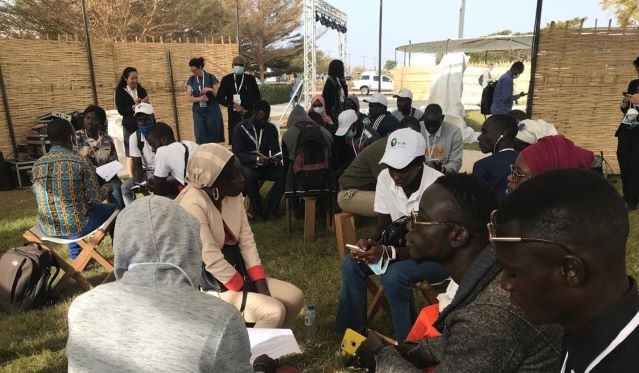Access the IWRM Action Hub
GWP’s Capacity Development Initiatives
Developing capacity is integral to GWP’s mission to achieve water security. GWP’s capacity development initiatives are aimed at supporting beneficiaries in: (1) understanding the obstacles that prevent them from fully realizing their development goals; and (2) finding the appropriate mechanisms in overcoming the challenges identified. The GWP’s capacity development activities fall into two broad categories:
-
IWRM Capacity Development – focuses on water governance from a holistic (IWRM) point of view. It is therefore concerned with raising awareness on the enabling environment, the institutional arrangements, and management instruments that support good water governance.
-
Thematic Capacity Development – explores key critical challenges to water security and introduces dimensions of IWRM which can bring solutions to the specific issues.
GWP collaborates with a wide range of international, regional and local partners in providing capacity development which responds to the needs of the beneficiaries. Capacity development activities are carried out in GWP’s regions and countries with individuals and organisations at all levels – e.g., from farming associations to national policy makers.Moreover, GWP collaborates with UNDP Cap-Net to develop a wide range of courses related to IWRM.
About GWP’s IWRM Training
GWP offers an IWRM Capacity Development Programme for professionals working in the field of water and environmental resources management. Our IWRM training is a 2-5 days workshop facilitated by our team of technical experts from the GWP network. The IWRM Training Programme is composed of four modules: (1) IWRM Theory; (2) IWRM Assessment and Data; (3) IWRM Tools and (4) IWRM Knowledge Management.
Our IWRM training programme is built on the IWRM Action Hub, an online knowledge sharing platform that supports water professionals with IWRM knowledge, data, and decisions support systems. The IWRM Action Hub offers 88 tools, 240 case studies, and 2000+ resources, making it the most comprehensive knowledge repository on IWRM available. The IWRM Action Hub additionally offers an assessment and diagnostic instrument called the IWRM Survey, which helps users identify key IWRM challenges in their country and get a list of tailored recommended solutions based on these needs.
IWRM Training Modules
Our IWRM training consists of four core modules which can be delivered in English, French, Spanish, and Russian. The length of the training is 2 to 5 days and the preferred modality is in-person training although online and hybrid formats can also be accomodated. Additional modules can be added, and the training can be lengthened, depending on the target audience and local needs for thematic capacitydevelopment. Here is a brief description of the core modules of our IWRM Training Programme:
Module 1 – IWRM Theory and Principles: In this introductory module we cover the basic definitions related to IWRM and discuss how to view a water governance system from an IWRM perspective (see IWRM Explained). This module provides a detailed description of the IWRM principles and pillars and discusses the interlinkages between IWRM and other water governance frameworks (e.g., OECD Principles on Water Governance, SIWI’s Water Governance Framework for Water Professionals, etc.).
Module 2 – IWRM Assessment Methodology and Data Portal: This module details the assessment methodology that was developed by the UN under the Sustainable Development Goals (SDG) indicator 6.5.1 on the degree of IWRM implementation. Participants are guided through the questionnaire for calculating the SDG 6.5.1. indicator before testing the methodology themselves by filling in the IWRM Survey in small groups. This module also guides participants on how to navigate the IWRM Data Portal.
Module 3 – IWRM Tools: In this module participants explore the array of IWRM Tools through a series of participatory and problem-based exercises. For instance, participants will be trained on socio-hydrological modelling techniques supporting IWRM interventions, including how to develop their own system dynamic models using Vensim® Software. This module also includes a role-play scenario where participants are asked to identify Tools to solve specific water challenges and to develop ariver basin management plan using concepts and notions from the Tools.
Module 4 – IWRM & Knowledge Management: In this module participants will be guided to reflect on their own interventions and learn from others through a learning loop cycle. Drawing from our rich collection of case studies, participants will compare experience and identify patterns of successful IWRM interventions. This module also covers training on the steps and conditions needed to set up effective communities of practice and social learning platforms.
Contact
Interested in our IWRM training? Contact us: iwrmactionhub@gwp.org

